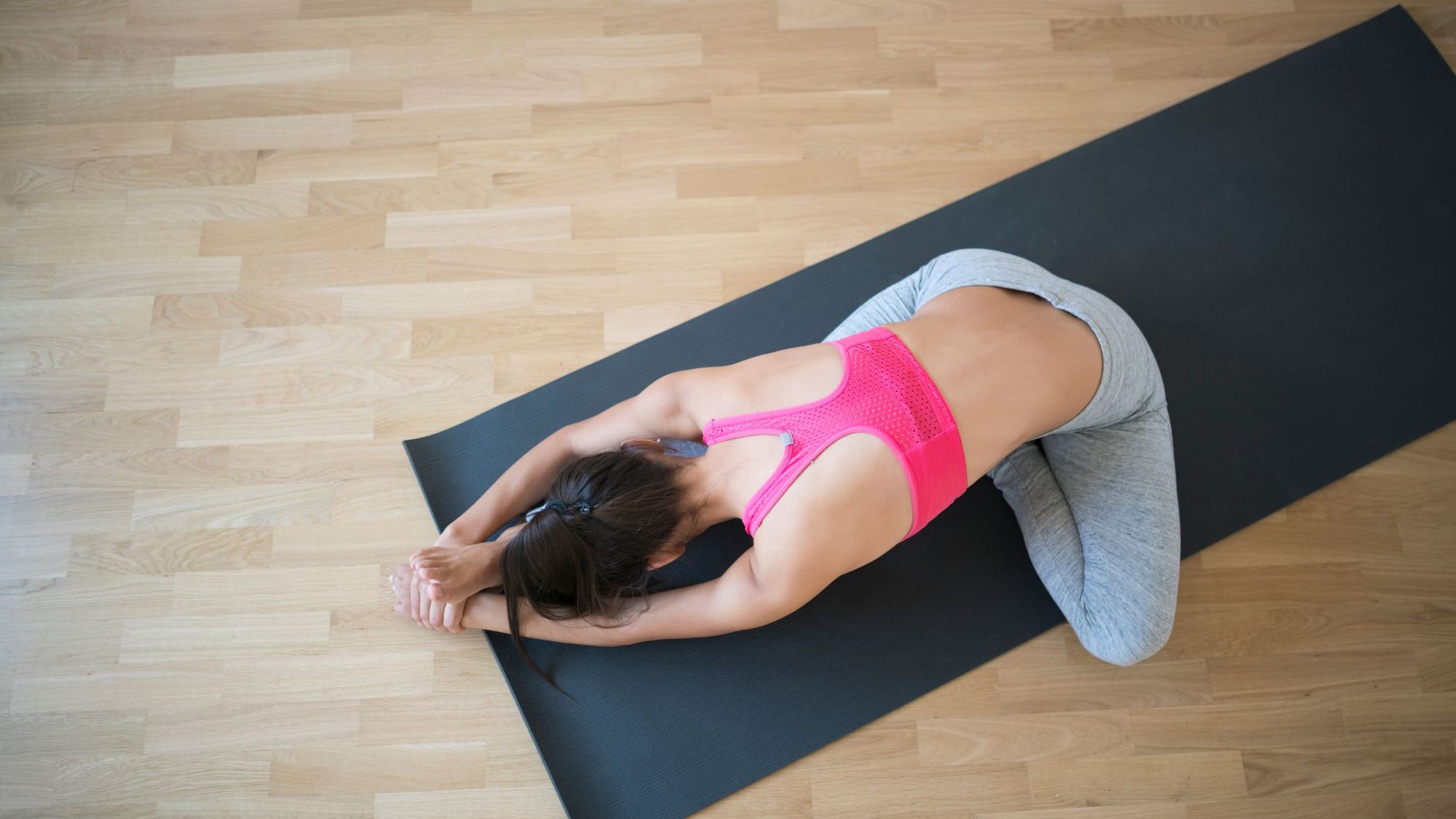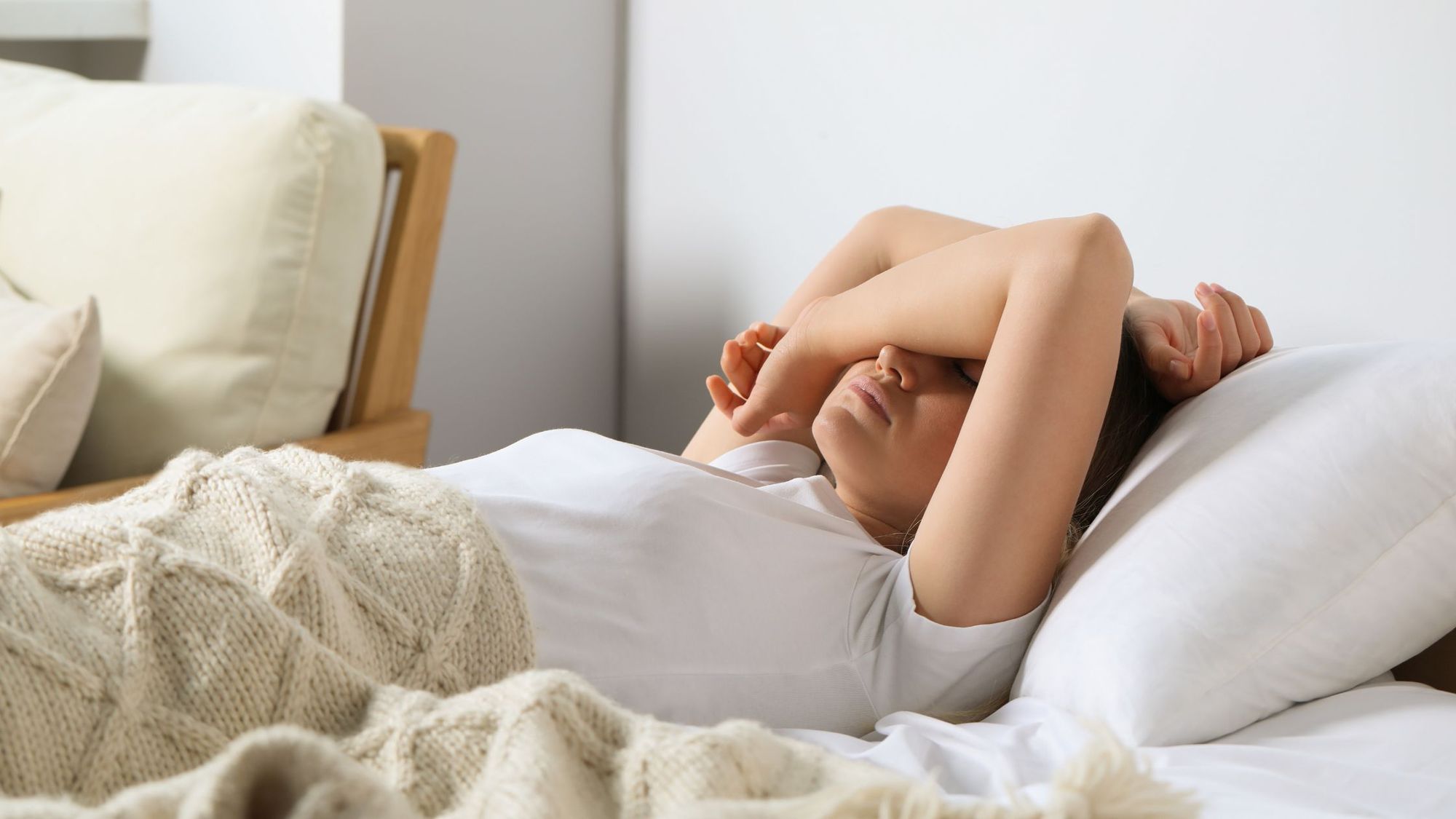
Learning and practicing progressive muscle relaxation (PMR) could alleviate muscle tightness and anxiety that often stems from work issues, relationship woes, financial worries or other stressors.
One big traumatic event or a build-up of smaller stressful stimuli could trigger chronic anxiety. Progressive muscle relaxation could help with these anxious feelings or trouble sleeping, because this is a relaxation technique that mitigates stress, which many studies say is one of the leading causes of illness in this modern world. Stress often results in anxiety and significantly reduces quality of life. When left unmanaged, stress could also cause high blood pressure or unstable heart rate, and in the worst case scenario, could lead to a heart attack or stroke.
It’s normal to feel stressed, anxious, or have trouble sleeping from time to time. In fact, busyness has become somewhat of a badge of honor that attests someone is living a full life. However, this concept is somewhat misplaced because people who tend to go on full speed without rest from stressors bring down their immunity, and are more likely to suffer from an illness compared to those living a balanced lifestyle.
Furthermore, some people unknowingly store this stress and anxiety in their body and carry their trauma in tight muscles, which could manifest as muscle stiffness, pain, difficulty falling asleep, and chronic neck aches or headaches.
If you want to relieve stress, getting a massage, taking a relaxing warm bath, doing yoga, or enjoying a hobby is not the only way to do it.
Unique relaxation techniques such as progressive muscle relaxation (PMR) could help decrease the mental impact of stress, as well as reducing the physical effects of stress on the body. This results in reduced anxiety, better mental health, and optimal physical wellness for thi8e long haul.
Explore progressive muscle relaxation below, to help you release anxious energy, achieve better sleep, and tame stress to prevent it from spiraling out of control.
What Exactly is Progressive Muscle Relaxation?
An effective way to relieve muscle tension and curb stress is through progressive muscle relaxation. Another term for this is the Jacobson Relaxation Technique, which was discovered by Dr. Edmund Jacobson in the 1920s. The concept is based on the theory that relaxing physically will encourage the mind to also relax. Jacobson’s strategy is very simple because it asserts that you can relax your muscles by intentionally tensing and releasing them.
You work on one muscle group at a time and progressively work on other areas, hence the technique’s name. While performing this repetitive process of tensing and releasing muscle groups, you recognize what tension feels like, and where you store tension in your body. More importantly, PMR could also help relax the mind, help you find anxiety relief, a healthy outlet for releasing anxious energy, and you could achieve better mental clarity while engaged in this practice. Progressive muscle relaxation provides a framework to help people achieve a state of optimal wellness because it helps manage the mental and physical side effects of stress.
The University of Toledo’s research states that with continual and consistent practice of progressive muscle relaxation, you will become more aware of when you are experiencing tension.
You’ll figure out where you store tension in the body, whether that’s in your chest, your throat, your face, your shoulders, neck – wherever. It’s different for everyone, and it’s important to find out where you store trauma, tension and stress.
Consequently, you will be armed with the skills and coping tools to relax. And learning this technique is highly beneficial for your mental health because you can nip stress and anxiety in the bud once you feel these negative emotions creeping up on you.

How Can You Implement Progressive Muscle Relaxation?
The Jacobson Relaxation method or PMR is a basic technique that anyone can do from home or anywhere. It has a low barrier to entry, especially with free demo videos online or audio recordings that tell you what to do. You can also ask a professional therapist to conduct a demonstration if you’re a beginner, then just continue with the practice by yourself. The idea behind progressive muscle relaxation is focusing on one muscle group, slowly tensing and relaxing each part. Allot 15 to 25 minutes to complete PMR, and it would be best to do this technique in a comfortable and calm place where you won’t get distracted.
Because you will be focusing on the different sensations of relaxing and tensing your muscles, this will help you become more attuned to your body and be more aware of physical sensations as you go on with your day. It could help you handle stressful stimuli, and assist you in letting go of what’s not mentally beneficial for you. Keep in mind that as you do this practice, your muscles should be tense but never to the point of strain. If you’re suffering from any injuries or feel any pain in an area, you can skip that part.
There are different ways to conduct progressive muscle relaxation. One technique involves working on your toes first. Tense the muscles and inhale deeply for 5 seconds and relax the same muscles while exhaling fully for 10 to 30 seconds before working your way up to the head and neck. As you contract the muscles, avoid holding your breath because this could lead to strain. An alternative option is, to begin with, the head and neck area, then progressively work your way down to your toes. The key is finding a sequence that makes you feel good.
How Does Progressive Muscle Relaxation Reduce Anxiety?
This relaxation technique could help mitigate anxiety because you’ll be more aware of what a stress response in your muscles feels like. Thus, you can make a conscious effort to begin implementing this coping strategy once you encounter stress and feel its symptoms manifest in your body. And PMR could provide mental relief because people with body malaise and illness tend to suffer mentally too. Keep reading to discover how progressive muscle relaxation could curb your anxiety:
Reduce tension while boosting overall well-being
One of the greatest benefits of this relaxation technique is it allows you to feel and release tension as you contract and relax your body’s muscle groups. Hence, studies show that doing this technique could significantly reduce symptoms of depression, anxiety, and stress because practitioners feel very relaxed.
Some experts even say that this method could be as effective as getting an acupuncture treatment because it helps you cope with difficult situations. As a result, people who consistently perform progressive muscle relaxation techniques could increase feelings of well-being and improve their quality of life.

Address sleep deprivation and promote better sleep quality
Since the practice of progressive relaxation helps your mind and body relax, this could promote better sleep quality. Research shows that people who have physical and psychological conditions that bar them from achieving a restorative sleep state increase their sleep quality and decrease anxiety by practicing PRM.
Moreover, sleep deprivation compounds mental health issues like anxiety and depression because lack of sleep boosts the production of cortisol in the body. This is a stress hormone that could also increase anxiety and exacerbate other issues such as promoting negative thought patterns with excessive worry or fear. Hence, practicing PMR is a major win because it promotes quality sleep which could result in increased physical energy and better mental fortitude.
This is why progressive muscle relaxation should be part of your bedtime routine if you’re often kept awake due to anxious thoughts or tension.
PMR eases physical symptoms associated with mental duress
Most people who suffer from stress commonly feel neck and shoulder pain. This physical symptom is often associated with mental duress and emotional stress. Similarly, people who suffer from tension and anxiety in their lives feel back pain, have high blood pressure, get migraine attacks, or endure TMJ symptoms (locked jaw or pain in the area). Sadly, having any physical illness which inhibits mobility could make you feel more anxious and stressed out. And the more you feel these ill feelings, the likelihood of increasing pain in the body is higher. That’s why at times, individuals battling physical problems and anxiety issues could feel as if they’re stuck in a vicious cycle.
The presence of physical health problems increases a person’s likelihood to develop mental health issues, and vice versa. The UK Mental Health Foundation notes that one in three people with a long-term physical condition also suffer from mental health issues, usually anxiety or depression. If you want to break the cycle, experts say that practicing progressive relaxation methods could alleviate pain or help practitioners feel less intense pain.
To illustrate, a 2013 study asserted that PMR curbs symptoms of chronic pain which also improves physical function and results in a better quality of life. When people are not burdened by their physical ailments, it spurs a greater sense of well-being and encourages more social involvement. In turn, the latter curbs feelings of anxiousness and loneliness, while promoting emotions that are more aligned with happiness.
Which Relaxation Technique Will Work Best For You?
If you find that contracting and relaxing your muscles through progressive muscle relaxation techniques alleviate your pain and anxiety, you have a powerful coping tool that can help you live a more fruitful life even amid stressors. However, the PMR technique may not be relaxing for everyone. Do not let your progressive muscle relaxation practice be another source of stress and anxiety in your life. If you feel that it is not working, try a different relaxation technique like visualization or writing in a journal.
To find the right relaxation technique, you first need to learn about your genetic sleep habits as well as any genetic mental health disorders you might be predisposed to experience.
An at-home DNA test from CircleDNA includes detailed information on your genetic sleep traits, which may help explain why you could be having trouble falling asleep, or whether you’re genetically more likely to struggle with stress. Finally, test results will also indicate your susceptibility to various mental health disorders, which could help you address potential triggers and find therapy options that are suited to your unique genetic constitution.
References:
- Life Event, Stress and Illness (Mohd. Razali Salleh) https://www.ncbi.nlm.nih.gov/pmc/articles/PMC3341916/
- Effectiveness of Progressive Muscle Relaxation, Deep Breathing, and Guided Imagery in Promoting Psychological and Physiological States of Relaxation (Loren Toussaint et.al.) https://www.ncbi.nlm.nih.gov/pmc/articles/PMC8272667/
- Progressive Muscle Relaxation (University of Toledo) https://www.utoledo.edu/studentaffairs/counseling/anxietytoolbox/pmr.html
- The Effect of Progressive Muscle Relaxation on Emotional Competence: Depression-Anxiety-Stress, Sense of Coherence, Health-Related Quality of Life, and Well-Being of Unemployed People in Greece: An Intervention Study (Kyriakoula Merakou et.al.) https://pubmed.ncbi.nlm.nih.gov/30228090/
- The effect of progressive muscle relaxation on anxiety and sleep quality in burn patients: A randomized clinical trial (Mehdi Harorani et.al.) https://pubmed.ncbi.nlm.nih.gov/31862277/
- How does my mental health affect my physical health (UK Mental Health Foundation) https://www.mentalhealth.org.uk/explore-mental-health/a-z-topics/physical-health-and-mental-health
- Effectiveness of Home-Based Cupping Massage Compared to Progressive Muscle Relaxation in Patients with Chronic Neck Pain—A Randomized Controlled Trial (Romy Lauche et.al.) https://www.ncbi.nlm.nih.gov/pmc/articles/PMC3676414/






Comments are closed.